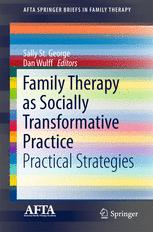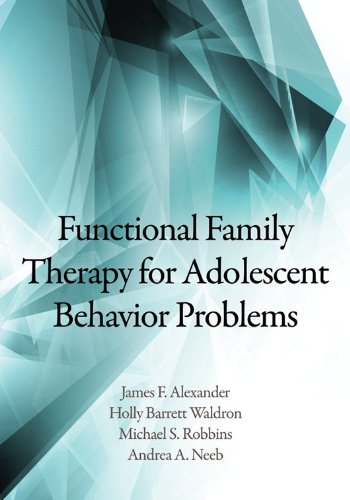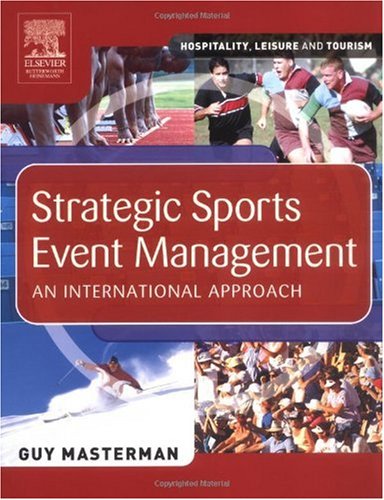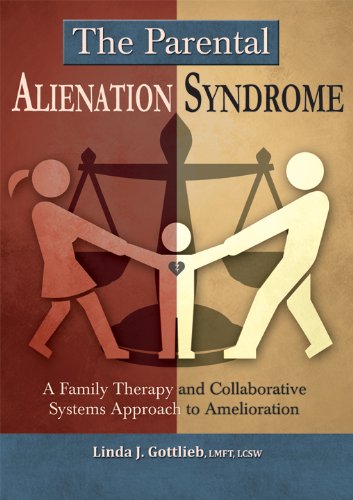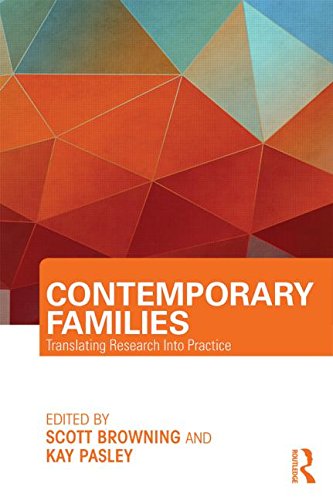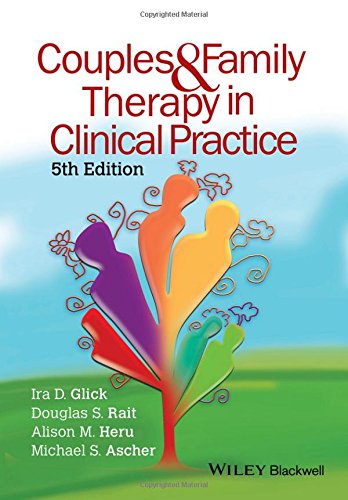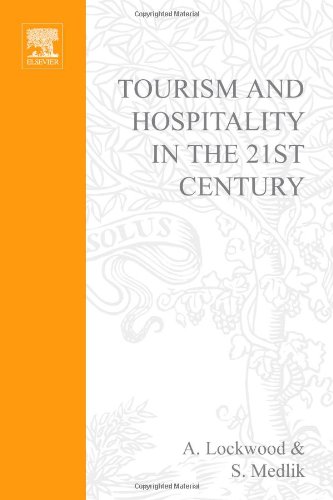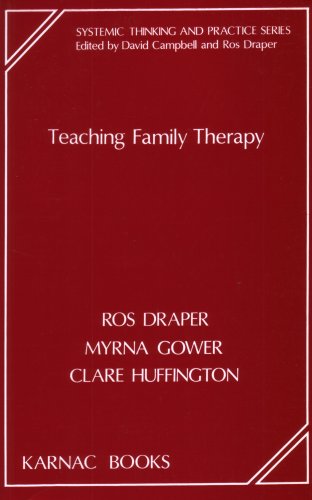موضوعات
آموزش و پرورش
ادبیات و زبان
پزشکی، دندانپزشکی و داروسازی
تاریخ و جغرافیا
داستان و رمان
دیگر
دین و فلسفه
روانشناسی
ریاضیات و آمار
سلامتی، تناسب اندام و رژیم غذایی
شیمی و پلیمر
علوم اجتماعی و حقوق
علوم زیستی و بیوتکنولوژی
فیزیک و نجوم
کامپیوتر و اینترنت
کتابهای کودکان و داستان
کسب و کار و اقتصاد
کشاورزی و دامپزشکی و غذا
معماری
مهندسی و فناوری
هنر و تئاتر
محصولات
Family Therapy as Socially Transformative Practice: Practical Strategies - Original PDF
نویسندگان: خلاصه: This thorough review of social justice in family therapy guides practitioners to incorporate concepts of equity and fairness in their work. Expanding on the relationships between larger social contexts and individuals’ family functioning, it offers practical strategies for talking with families about power disparities, injustice, and respect, and for empowering clients inside and outside the therapy room. Case studies and discussions with therapists illustrate how family challenges are commonly exacerbated outside the home, and the potential for this understanding to help clients work toward positive change while improving therapists’ professional development. The book’s accessible, solution-focused approach shows small therapeutic steps changing families, communities, and clinical practice for the better. Included in the coverage: Family therapy + social justice + daily practices = transforming therapy. Researcher as practitioner: practitioner as researcher. Learning to speak social justice talk in family therapy. Supporting the development of novice therapists. Everyday solution-focused recursion: when family therapy faculty, supervisors, researchers, students, and clients play well together. Family therapy stories: stretching customary family therapy practices. At once down-to-earth and inspiring, FamilyTherapyasSociallyTransformativePractice is a must read forthose interested in family therapy and family-centered practices and policies.Functional Family Therapy for Adolescent Behavior Problems - Original PDF
نویسندگان: خلاصه: Adolescents with disruptive behavior problems represent one of the most difficult and recalcitrant treatment populations. These youth and their parents often enter treatment unwilling or unable to try new behaviors. This book explains how to provide Functional Family Therapy (FFT), an empirically supported, highly successful family intervention for delinquent and substance-using adolescents. FFT systematically alters important risk and protective factors associated with the problem behaviors. The FFT therapist first increases family members motivation to change by disrupting and replacing their dysfunctional attributions about themselves and each other. The therapist then works with the family to eliminate the problem behaviors and generalize new skills and interaction patterns to broader community relations.The Parental Alienation Syndrome: A Family Therapy and Collaborative Systems Approach to Amelioration - Original PDF
نویسندگان: خلاصه: In this thought-provoking book, Ms. Gottlieb attempts to resolve the controversies surrounding Parental Alienation Syndrome (PAS) by providing substantial empirical evidence from her treatment cases in support of the eight symptoms which child psychiatrist, Richard Gardner, had identified as occurring in the PAS child, and she further exemplifies the commonality of the alienating maneuvers among the alienating parents. The author redefines the typically-held characterization of the parents' relationship as portrayed in the pertinent literature and accepted by most PAS-aware professionals. Numerous case examples are explored: horrific tales of manufactured child abuse; referrals to child protective services (CPS) resulting in suspension of visits between targeted parents and their children; meritless reports to police alleging domestic violence in support of orders of protection which slander and stigmatize targeted parents; exclusionary tactics preventing targeted parents' involvement in their children's medical, educational, social lives and activities; and depletion of targeted parents' resources due to legal fees required to defend himself/herself and to obtain judicial enforcement of parental rights. Ms. Gottlieb methodically documents that PAS is a form of emotional child abuse of the severest kind. The author provides an unprecedented number of treatment summaries, which demonstrate the effectiveness of structural family therapy in treating the PAS family. To further elucidate the subject, the author interviewed several matrimonial attorneys, Law Guardians, and forensic evaluators regarding their experiences with PAS, and she incorporated their thoughts into her recommendations as to how the mental health and judicial communities should resolve this situation in the best interests of the child. "New Rules" are suggested which encourage a collaborative rather than an adversarial approach to child custody. This book will be an excellent resource for parents who are divorcing or are in conflict, for adult-child victims of PAS, for mature children of divorcing parents, for judges, for Law Guardians, for matrimonial attorneys, for therapists, for child protective personnel, for law enforcement----and for the professional rescuer who believes that a child must be saved from a parent.Contemporary Families: Translating Research Into Practice - Original PDF
نویسندگان: خلاصه: Written for researchers, practitioners, and students in advanced courses, this book furthers our understanding of the complexity of contemporary families. Seven types of families are the focus of this book, based on the research available and the challenges they present for mental health professionals. The family forms discussed are • Adoption • Foster care • Interracial families • Family members with special needs (with a focus on autism) • Families with LGBTQ members • Grandparent-headed Families • Family members with chronic medical conditions The volume establishes an innovative format that fits the new age of evidence-based practice. Each chapter is written by a collaborative team of authors consisting of researchers and practitioners. The former address the prevalence and characteristics of the family form and then present the research findings most relevant to clinical practice; the latter use this as the foundation for their portion of the chapter, in which they discuss strategies for good therapeutic intervention, representing a true integration of science and practice. Readers learn about relevant research findings regarding each family described, as well as gain explicit instruction and case material for which to augment therapeutic efforts with these populations.Couples and Family Therapy in Clinical Practice - Original PDF
نویسندگان: خلاصه: Fifth edition of a classic text that views couples and family therapy through a psychiatric lens Written by clinicians with a biopsychosocial perspective on illness and family dysfunction Draws on case studies to present family-oriented interventions in an accessible manner Explores underlying principles along with a wide range of practical therapeutic techniques Culturally inclusive, enabling readers to work with patients from diverse backgroundsTeaching Family Therapy - Original PDF
نویسندگان: خلاصه: The teaching of family therapy has been the subject of serious scrutiny since the onset of training and accreditation many years ago, yet there are relatively few attempts to apply what we know about systems and the ways they change family therapy teaching as a two-way process. It is as though family therapy teachers were preoccupied with the content of what should be taught, and were not able to direct their attention to the process by which people learned.The authors began by describing the way they conceptualize the "learning context" which sets the frame for all the teaching they do. Then they discuss the process of setting up a family therapy course, e.g. "What is the best way to negotiate with a training officer to set up a course in a local area?". The book then moves to creating the course syllabus, and some of the practical problems-from lateness to mechanical failures-of getting the course off the ground.The family therapy courses being described are generic courses which cover all the major schools of thought from Structuralist to Strategic to systemic to Constructivist approaches. The unique contribution of this book is the many carefully crafted exercises which form the heart of the teaching/learning experience. Each exercise is designed to teach particular content, such as "enactment", or "circular questioning", which is related to a particular family therapy approach, yet the exercise is also designed with the learning context in mind and it pays attention to the ongoing relationship between teacher and student to maximize the learning which can take place.Tourism, Security and Safety: From Theory to Practice (The Management of Hospitality and Tourism Enterprises) - Original PDF
نویسندگان: خلاصه: The topic of safety and security in the tourism industry is of vital importance globally. In recent years, and mainly after the 9/11 event, both academics and practitioners have started to look into crisis management issues seeking workable solutions in order to mitigate the negative impacts of safety and security incidences on the tourism industry and affected destinations. Tourism, Safety and Security: a multi dimensional analysis brings together the writings of international leading academics and practitioners in this field to discuss prevention measures and crisis management options, in incidences of tourism safety and security.آیا کتاب مورد نظر هنوز بر روی سایت قرار نگرفته است؟ جای نگرانی نیست! کافی است بر روی گزینه سفارش کتاب کلیک کرده و درخواست خود را ثبت کنید. در کمتر از چند ساعت کتاب شما را آماده خواهیم کرد.
